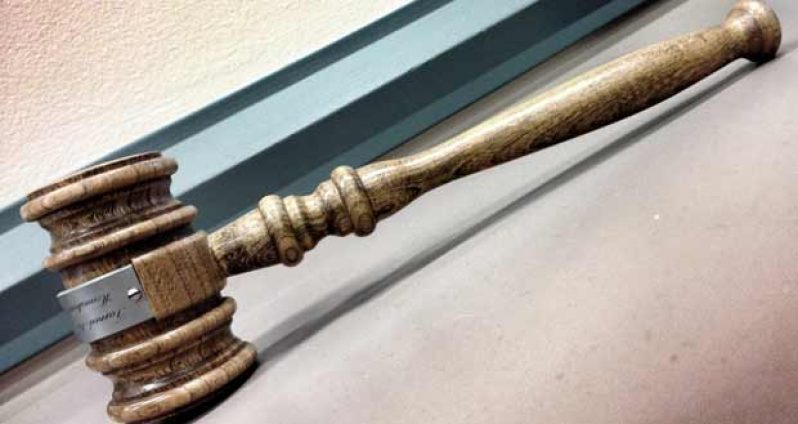IN 1968, burglary and larceny accused Gulliver Jerrick was convicted by a 11-man jury without the consent of the accused, resulting in the Appellate Court quashing the conviction and ordering a new trial.The Appellate Court constituted by Chancellor Kenneth Stoby, J. A. Luckhoo and P. A. Cummings held that according to the provisions of the Criminal Law (Procedure) Ordinance, the consent of an accused person must be obtained before a trial may be continued with 11 jurors, and the consent of counsel for the defence, even in the presence of the accused, was not enough.
J. O. F. Haynes, Q.C. appeared for the appellant while J. Gonsalves-Sabola, in association with G. A. Pompey, appeared for the respondent.
Chancellor Stoby, delivering the judgment of the court said, the appellant was indicted and convicted for burglary and larceny contrary to ss. 238 and 187 of the Criminal Law (Offences) Ordinance, Chapter 10 [G].
The evidence in the case was quite simple. On the night of April 20, 1967, a Mrs. Rachael Collins retired to bed about 9.45 p.m.
During the night, she was disturbed by sounds in her bedroom and saw two men – one rifling the dressing case and the other searching a suit case. She recognized one of the men and made an alarm but the men escaped before the arrival of assistance.
The police were contacted and after about two weeks one man was arrested. He was placed on an identification parade and was identified by Mrs. Collins.
Justice Stoby said that several matters were raised on appeal but the Court would only make reference to two of them.
It was submitted that the indictment was bad in law for duplicity in that in one count it invalidly charged the offence of larceny in a dwelling house contrary to s. 187 and the offence of burglary contrary to s.288.
Counsel contended that the specimen form in Archbold’s Criminal Pleading, Evidence and Practice (32nd Edition) was not applicable to the law at the time.
Burglary and larceny were, he said, common law offences and in charging burglary and larceny in one indictment the prosecution was charging one offence.
At the time, he argued, each offence was a statutory offence and each should have been charged in a separate count.
The other ground of appeal was that the trial was improperly continued with eleven jurors.
The trial began on the morning of October 17. 1967. It was adjourned at 11.30 a.m. until 1 p.m.
On the resumption, counsel for the Crown informed the judge that one of the jurors was not feeling well and asked to be excused.
The judge asked whether it was a trivial or serious indisposition. Crown Counsel replied that it appeared to be quite serious and requested that the juror be excused for the duration of the trial. He drew the judge’s attention to Chapter 11 [G.], s.84.
Counsel for the appellant said he had no objection to the request. The judge thereupon excused the juror in accordance with Ch0ap.11 s. 84, and the trial proceeded with 11 jurors.
Chapter 11 [G.], s.84, provides that in every case the jury shall consist of 12 persons, provided that where in the course of a trial any juror dies or is discharged by the court as being through illness incapable of continuing to act or for any other reason ,the jury shall nevertheless , so long as the number of the jurors is not reduced below 10, be considered as remaining for all the purposes of that trial properly constituted, and the trial shall proceed and a verdict may be given accordingly.”
Whereas in England counsel can sign the written consent on behalf of the accused, in Guyana the consent of the accused is imperative; where the written consent is signed it is open to the court to presume, as in Browne’s case, that consent could be implied.
Browne’s case did not decide that in a criminal case the position of counsel is the same as in a civil case.
Further, it was stated that the fact that only the prisoner himself can plead shows that counsel cannot always act on behalf of his client; Nor can it be said that the counsel’s consent must be implied as the discussion took place in his presence because anyone who has had experience of criminal trials in Georgetown knows that most prisoners do not always appreciate what is said in Court. The judge’s duty was to obtain the accused’s consent and as he did not do so, the Court of Appeal quashed the conviction and ordered a new trial.
Conviction quashed because accused did not consent to 11-member jury
SHARE THIS ARTICLE :
Facebook
Twitter
WhatsApp


.jpg)










